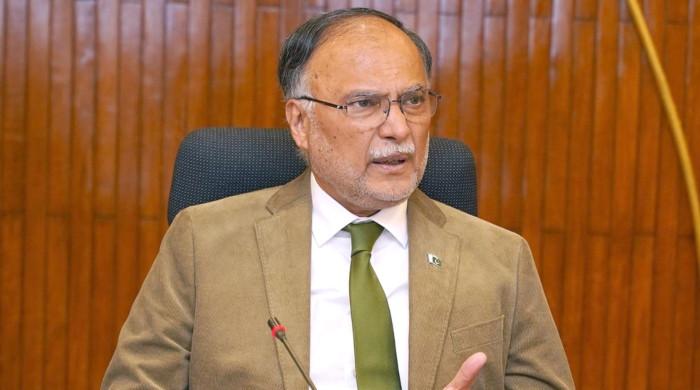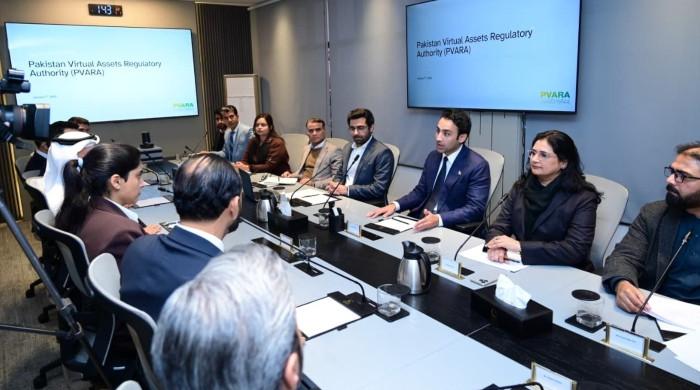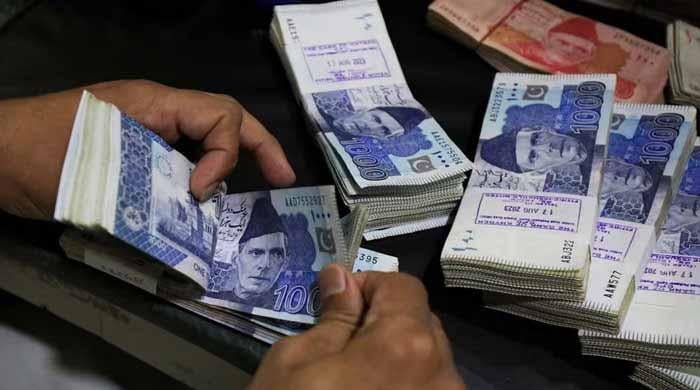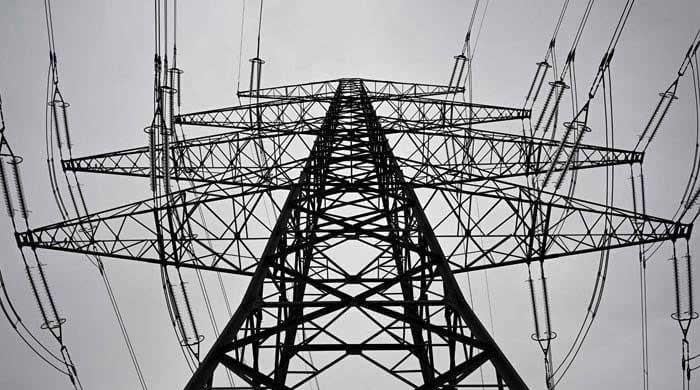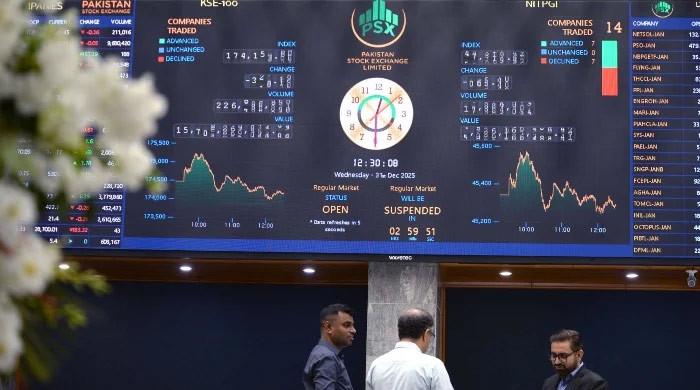Govt focusing on sustained growth driven by domestic resources, enhanced exports: Iqbal
Minister emphasises urgent need to complete critical reservoir projects to safeguard Pakistan's water security
June 12, 2025
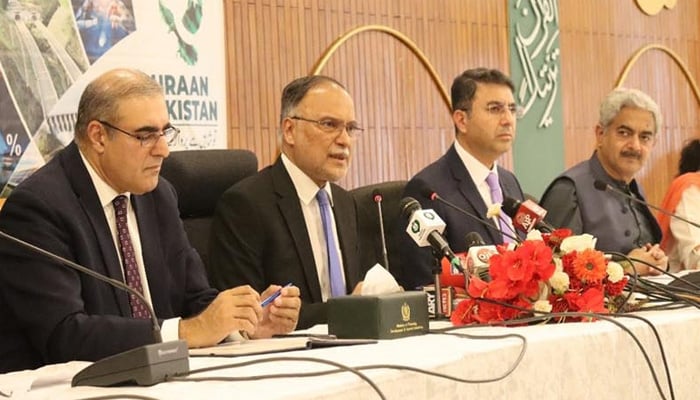
- Ahsan Iqbal says Balochistan put on accelerated development path.
- "Aiming to meet development, expenditures via domestic resources."
- Govt to launch Silicon Valley initiative to integrate tech programmes.
Federal Minister for Planning, Development and Special Initiatives Ahsan Iqbal while highlighting development priorities of the government, has that Balochistan has been put on an accelerated development path for which Rs230 billion have been earmarked in the federal budget 2025-26.
Addressing a press conference in Islamabad on Thursday, the minister said, development of Balochistan was being treated as a national responsibility, in line with the directives of Prime Minister Shehbaz Sharif.
The initiative aims to transform the socio-economic landscape of the province over the next two years through targeted investment in critical infrastructure projects to improve connectivity.
A key highlight of the development plan is the N-25 Chaman-Quetta-Karachi highway, for which Rs100 billion has been allocated.
The project is expected to be completed within two to three years and will serve as a strategic corridor. In addition work will also accelerate on the M8 and several other regional infrastructure schemes aimed at boosting connectivity, promoting investment, and ensuring inclusive development.
Ahsan said, with growing concerns over the use of water as a geopolitical tool, the government attached great importance to water sector, emphasising the urgent need to complete critical reservoir projects to safeguard Pakistan's water security.
He said that India has attempted to use water as a weapon. While India cannot legally stop Pakistan's water under the Indus Waters Treaty (IWT) — nor will it be allowed to — it may try to disrupt flows.
To counter potential threats and ensure long-term resilience, the government is moving swiftly to complete Diamer Bhasha and Mohmand dams with storage capacity of 6 million acre feet and around 1 million acre feet, respectively, bringing the total capacity to around 7 million acre feet.
The minister acknowledged that tight fiscal space, driven by structural constraints, has reduced its ability to fund development projects under the Public Sector Development Programme (PSDP).
He said that the development budget has declined from 2.6% of GDP in 2017-18 to just 0.8% — a trend described as a serious structural concern for national development.
Looking ahead, the government aims to meet development and other expenditures through domestic resources, however, achieving this goal requires raising Pakistan's tax-to-GDP ratio to at least 16% — a level already maintained by regional peers.
Talking about performance of economy, he said, the country's economic turnaround was the result of bold, politically unpopular decisions taken by the coalition government under the leadership of Premier Shehbaz, aimed at ensuring long-term stability.
He said, when the PDM government came into power, many predicted it would last only a few weeks.
"It was the prime minister's courageous leadership and tough economic measures that saved Pakistan from collapse," he said, adding that these reforms came at the cost of political capital but were necessary for national interest.
Iqbal highlighted the challenges faced at the start of the coalition's tenure, including the devastating 2022 floods which caused over $30 billion in damages.
"Despite the crisis, we continued development funding—unlike the previous PTI government, which withheld funds for an entire quarter," he said, accusing the former ruling party — Pakistan Tehreek-e-Insaf (PTI) — of leaving behind a ballooning trade deficit of $50 billion and engaging in hate-based politics rather than development.
Iqbal noted a series of positive economic indicators: inflation down to 4%, policy rate reduced from 23% to 11%, and a booming stock market. He added that international institutions have acknowledged Pakistan’s recovery, with global journals calling it a "miracle turnaround".
Tax reforms have led to a record 29% increase in the Federal Board of Revenue (FBR) revenue collection. Development spending also rose sharply, with the total outlay increasing by 50% in FY2025-26 to Rs4.224 trillion from Rs2.832 trillion, supported by improved provincial allocations.
Reforms in the energy sector, including restructuring subsidies and resolving issues with IPPs, have improved fiscal discipline. The government is now focusing on sustained growth driven by domestic resources, enhanced exports, and rising remittances, which have grown from $27 billion to $37 billion.
He said that the government's development plan, branded Uraan Pakistan, is already bearing fruit and projects GDP growth to rise from 2.7% to 4.2% in the coming fiscal year.
Iqbal emphasised that enhancing exports and increasing revenues were essential to placing Pakistan's economy on a path of sustainable growth and breaking free from recurring boom-and-bust cycles.




